I have to admit to a love of first person narration in fiction, stories told from the point of view of the narrator and thus limited to what the character experiences. It’s not that I don’t appreciate third person point of views, or even the occasional second person story, but first person narration, when done right, let’s you get closer to a character, right up into their thoughts and feelings, than most other narrative styles allow.
Two aspects of first person narration really make this POV shine for me. The first is voice. While all stories have the opportunity to showcase voice, first person narratives, by their very nature, allow for voice to define character. They way a character tells the story should reflect their personality. It shows us if the character has swagger, or if they’re thoughtful and retiring. In the best stories it’s the voice that is our first hook into the piece and this will often pull us through, especially when the narrator has to take time explaining backstory or worldbuilding.
The other feature of first person narration which I love, and which is a little odd, is the concept of the unreliable narrator. In these cases, we’re told everything by the narrator, but that narrator is, as labeled, unreliable. We can’t trust that everything the narrator says is true. Perhaps they are blinded by their own biases or perhaps they are hiding something out of shame. I suppose I like these because, again, when well written, they reward close reading. The story should show us the gaps in the narrative, the divisions from the truth, and this sheds more light on both the character and on the truth at the same time. Many of my favorite first person stories have unreliable narrators, and they’re the ones that I return to again and again.
What I’ve said applies to all fiction, including fantasy fiction. In some cases, first person narrators in fantasy are called upon to do more work than in a contemporary literary piece. Not only do they have to tell the story, but they have to reveal aspects of the setting, illuminating the worldbuilding and, hopefully, do so without slowing things down or dumping large chunks of exposition on us. Using voice, and often good research, such narrators can speak with authority, convincing us that they know their own worlds and help make them real for us.
First person narration in fantasy is often found in urban fantasy, drawing inspiration from hard-boiled detective stories in some cases, but it can be found across the fantasy landscape. Here, then, are a list of my favorite examples of first person narratives in fantasy:
![]() Corwin - Chronicles of Amber
Corwin - Chronicles of Amber
Roger Zelazny’s Chronicles of Amber, two series of five books each, are my favorite fantasy books of all time. And while the second series pales in comparison to the first, both employ first person narrators.
The narrator of the first series is Corwin, one of the finest unreliable narrators in fiction. When the first book, Nine Princes in Amber, opens, Corwin is suffering from amnesia. He doesn’t know who he is or what has happened to him aside from a few impressions. He wakes up in a medical clinic and from there starts a journey to get his memory back.
It’s a neat trick which allows the reader to uncover the world and Corwin’s background, along with Corwin himself. This soon leads to a riveting story involving Amber, the one true world, and Corwin’s relatives, many of whom are out to get him. I won’t spoil too much of the story (and I’ll be speaking more in depth about the series in the next column), but Corwin’s rich background and his swagger help push these books from great to amazing.
“I walked among Shadows, and found a race of furry creatures, dark and clawed and fanged, reasonably manlike, and about as intelligent as a freshman in the high school of your choice- sorry, kids, but what I mean is they were loyal, devoted, honest, and too easily screwed by bastards like me and my brother. I felt like the dee-jay of your choice.”
― Roger Zelazny, Nine Princes in Amber
“Strygalldwir is my name. Conjure with it and I will eat your heart and liver."
"Conjure with it? I can't even pronounce it, and my cirrhosis would give you indigestion.”
― Roger Zelazny, The Guns of Avalon
![]() Vlad Taltos - The Vlad Taltos/Dragaera books
Vlad Taltos - The Vlad Taltos/Dragaera books
To say that Steven Brust was influenced by Zelazny is to understate the case. Brust, who named his son Corwin, makes no bones about adopting Zelazny’s style of writing for his Vlad Taltos novels, most of which are narrated by Vlad (though there are exceptions). Like Corwin, Vlad leads us with his personality, a human assassin who lives in a sword and sorcery world dominated by Elves (called Dragaerans).
Over the course of 13 books now, Vlad grows and changes, starting as an assassin and witch, and becoming a fugitive, wanderer, soldier and hero. More than Corwin, Vlad has a sense of humor and is more of a wisecracker. And where Corwin is of high birth, Vlad, though respected in his community, comes from the lower parts of his society by being a human, an Easterner. This show us the classism built into Dragaeran society, nicely focused by the lens of Vlad’s eyes. Vlad has a jhereg familiar, a kind of small dragon that he’s telepathically linked to, and their interplay, the casual understated intimacy of it, adds a lot to the narration. Though I’m not completely caught up on the series, the early books specifically are worth picking up.
"No matter how subtle the wizard, a knife between the shoulder blades will seriously cramp his style.”
― Steven Brust, Jhereg
“What can I tell you about Sethra Lavode? Those who believe in her say she has lived ten thousand years (some say twenty). Others say she is a myth. Call her life unnatural, feel her undead breath. Color her black for sorcery, color her gray for death.
She smiled at me. We were all friends here. Morrolan carried Blackwand, which slew a thousand at the Wall of Barritt's Tomb. Aliera carried Pathfinder, which they say served a power higher than the Empire. Sethra carried Iceflame, which embodied within it the power of Dzur Mountain. I carried myself rather well, thank you.”
― Steven Brust, Jhereg
![]() Harry Dresden - The Dresden Files
Harry Dresden - The Dresden Files
First person narrations are popular in urban fantasy books, but the Dresden Files stories by Jim Butcher are some of the best of the bunch. Harry Dresden is a wizard and PI in modern-day Chicago. Like the best hard-boiled heroes, Harry is always getting in over his head and regularly getting beaten up in the course of saving his friends or the world. He’s a lot like Spider-Man, quick with a wisecrack but always remembering that with great power comes great responsibility. Harry is one of the rare cases where we expect him to be an antihero, but he turns out to be a hero. And it works. Over 13 novels, Harry’s story has come so far, his powers have grown along with his understanding of the world around him, but he’s remained an engaging narrator. For those who like audiobooks, I heartily recommend those narrated by James Marsters.
“My name is Harry Blackstone Copperfield Dresden. Conjure by it at your own risk. I’m a wizard. I work out of an office in midtown Chicago. As far as I know, I’m the only openly practicing professional wizard in the country. You can find me in the yellow pages, under ‘Wizards.’ Believe it or not, I’m the only one there.
My ad looks like this:
HARRY DRESDEN--WIZARD
Lost Items Found. Paranormal Investigations.
Consulting. Advice. Reasonable Rates.
No Love Potions, Endless Purses, Parties or Other Entertainment
You'd be surprised how many people call just to ask me if I'm serious. But then, if you'd seen the things I'd seen, if you knew half of what I knew, you'd wonder how anyone could not think I was serious.”-- Jim Butcher, Storm Front
![]() Severian - The Book of the New Sun
Severian - The Book of the New Sun
Often classified as science fantasy, I’m claiming these because, hell, that still contains “fantasy”. Gene Wolfe’s magnum opus, which starts with The Shadow of the Torturer, is a dense but Spartan tale of a world in the distant future where the sun is not far from dying and science and magic are both present and indistinguishable from one another. Severian, the narrator and a torturer, is extremely unreliable and, to make matters worse, Wolfe doesn’t include an extra word in these books so they reward close reading and rereadings. Certainly one of the masterworks of first person narration. Severian, unlike those already mentioned on this list, has very little in the way of personality, though he does have an eidetic memory. Much of his narration is a relation of events and his thoughts on the same. But again, it rewards the reader to pay close attention to his actions as he narrates them. They provide glimpses into Severian’s character and sometimes belie what he’s telling us at the same time.
"I have never had much need for companionship, unless it was the companionship of someone I could call a friend. Certainly I have seldom wished the conversation of strangers or the sight of strange faces. I believe rather that when I was alone I felt I had in some fashion lost my individuality; to the thrush and the rabbit I had been not Severian, but Man. The many people who like to be utterly alone, and particularly to be utterly alone in a wilderness, do so, I believe, because they enjoy playing that part. But I wanted to be a particular person again, and so I sought the mirror of other persons, which would show me that I was not as they were.”
― Gene Wolfe, The Sword of the Lictor
![]() Fitz - The Farseer Trilogy
Fitz - The Farseer Trilogy
Unlike some of the other narrators here who wisecrack or swagger through their stories, Fitz, the narrator of Robin Hobb’s Farseer series, is thoughtful and almost academic in the way he tells the story. And yet there’s no sense of distance between the reader and the narrator. While I would love to have a drink with Corwin, or a meal with Vlad Taltos, I’d like to take a walk with Fitz (and maybe a few dogs) and just talk quietly. Fitz may very well be the most likable of the characters on this list. Fitz is a bastard (by birth), and this has colored most of his life. The pain of that stigma seems to be there, under the surface, throughout most of the narration.
Also unlike many of the other examples here, Fitz begins his telling of the story from a time when he was six years old. As such, we see him grow and are there with him as he faces life’s usual trials as well as a host of those that would be unknown to us. As the title tells us, Fitz eventually becomes trained in assassination. However, where other books would focus purely on that, Fitz continues to be a very rounded character tackling a variety of challenges. And I’ll say this for Robin Hobb -- she sure knows how to torture a character. I’ll give you a hint -- it involves puppies.
“I wonder if I can write this history, or if on every page there will be some sneaking show of a bitterness I thought long dead. I think myself cured of all spite, but when I touch pen to paper, the hurt of a boy bleeds out with sea-spawned ink, until I suspect each carefully formed black letter scabs over some ancient scarlet wound.”
-- Robin Hobb, Assassin's Apprentice
In truth, I was his only failure that year, but I was a monumental one. He preceded us home to Buckkeep, where he abdicated his claim to the throne. By the time we arrived, he and Lady Patience were gone from court, to live as the Lord and Lady of Withywoods. I have been to Withywoods. Its name bears no relationship to its appearance. It is a warm valley, centered on a gently flowing river that carves a wide plain that nestles between gently rising and rolling foothills. A place to grow grapes and grain and plump children. It is a soft holding, far from the borders, far from the politics of court, far from anything that had been Chivalry's life up to then. It was a pasturing out, a gentle and genteel exile for a man who would have been King. A velvet smothering for a warrior and a silencing of a rare and skilled diplomat.
And so I came to Buckkeep, sole child and bastard of a man I'd never know. Prince Verity became King-in-Waiting and Prince Regal moved up a notch in the line of succession. If all I had ever done was to be born and discovered, I would have left a mark across all the land for all time. I grew up fatherless and motherless in a court where all recognized me as a catalyst. And a catalyst I became."
-- Robin Hobb, Assassin's Apprentice
![]() Cassel Sharpe - The Curse Workers Trilogy
Cassel Sharpe - The Curse Workers Trilogy
Though YA, Holly Black’s White Cat and its sequels are undeniably fantasy. Cassel Sharpe lives in a world containing curse workers, people able to work certain kinds of magic, and requiring touch. Only curse work is illegal. And since Cassel’s family are mostly curse workers, they’re criminals.
Cassel doesn’t have curse worker abilities, but he still grew up in a family of criminals and has become a con man and a grifter, despite being only seventeen. He also has a dark secret in his past. He killed his friend Lila when he was fourteen and can’t remember why.
Cassel stands out because of his worldliness and his questionable moral stance. When he starts having strange dreams about a white cat, and sleepwalking (the latter of which gets him kicked out of school), he wants to go back just to carry on with his gambling schemes and other cons. But he starts unraveling pieces of a mystery that seem to hinge on that very same white cat. White Cat was one of the best YA books I read last year and two sequels (Red Glove and Black Heart) are currently available.
“My mother explained the basics of the con around the same time she explained about curse work. For her the curse was how she got what she wanted and the con was how she got away with it. I can’t make people love or hate instantly, like she can, turn their bodies against them like Philip can, or take their luck away like my other brother, Barron, but you don’t need to be a worker to be a con artist.
For me the curse is a crutch, but the con is everything.”
-- Holly Black, White Cat
![]() Yeine - The Hundred Thousand Kingdoms
Yeine - The Hundred Thousand Kingdoms
In the opening to N. K. Jemisin’s The Hundred Thousand Kingdoms, Yeine, only nineteen and the chieftain of her people, struggles to tell her story, complete with false starts and having to go back to fill in important details. The effect here is that it feels as if the story is being told directly to us; there’s a sense of intimacy in the telling that attaches us to Yeine and her story.
Jemisin’s book is a sprawling fantasy dealing with chained gods who have become weapons of mass destruction, earthbound armies, and a city called Sky which floats in the, well, sky. But the focus of the story is on relationships and emotion radiates from the novel. Much of this is accomplished through Yeine’s narration. Whereas some authors telling a story of this scale would pull back with the narration, we’re right there with Yeine and we feel and see what she does. Jemisin wrote two sequels, which are both first person narrations, but told by different characters. Full disclosure - Nora (N. K.) is in my writing group, but I stand by my opinion that these are powerful fantasy stories that deserve to be read.
“I am not as I once was. They have done this to me, broken me open and torn out my heart. I do not know who I am anymore.
I must try to remember.My people tell stories of the night I was born. They say my mother crossed her legs in the middle of labor and fought with all her strength not to release me into the world. I was born anyhow, of course; nature cannot be denied. Yet it does not surprise me that she tried.
My mother was an heiress of the Arameri. There was a ball for the lesser nobility — the sort of thing that happens once a decade as a backhanded sop to their self-esteem. My father dared ask my mother to dance; she deigned to consent. I have often wondered what he said and did that night to make her fall in love with him so powerfully, for she eventually abdicated her position to be with him. It is the stuff of great tales, yes? Very romantic. In the tales, such a couple lives happily ever after. The tales do not say what happens when the most powerful family in the world is offended in the process.”
-- N. K. Jemisin, The Hundred Thousand Kingdoms
![]() Joe Pitt - The Joe Pitt Casebooks.
Joe Pitt - The Joe Pitt Casebooks.
While known for his crime novels, Charlie Huston tackled vampires in the Joe Pitt Casebooks, which begin with Already Dead. Huston was clearly influenced by hard-boiled pulp and he brings his fast paced style to the world of the supernatural with Joe Pitt.
Pitt is a vampire and a kind of Fixer living in New York. Whereas most of the other vampires have formed into gangs or clans, Pitt exists on his own, helping to secure his independence by sometimes doing jobs for others. And of course, in true pulp style, he’s always getting in over his head. What drew me to these books instantly was the way that Huston tells the story, first person, present tense so that the action feels immediate. He eschews not only quotation marks, but attribution tags as well. It makes it easy to just fall into the flow of the narrative and get swept along.
“It’s not that fact of him telling me he’s not going to kill me that assures me I’ve got some time to breathe. Predo could look me in the eye and tell me whiskey’s good and cigarettes are better and I’d still need a drink and a Lucky to believe he’s not lying. The man breeds lies. He spawns them asexually, with no need for any assistance. He exhales and lies fill the air. Alone in a room, he mutters lies to himself to keep from falling into the trap of truth-telling. In the day, sleeping in his bed, deep in the safest heart of Coalition headquarters, he dreams in lies. The better to keep his left hand from knowing what betrayals his right has planned.
Stretched on the rack and burned with hot irons, Dexter Predo will be in no danger of revealing the truth. Living so far beyond its borders.”
― Charlie Huston, Every Last Drop
![]() Tyador Borlú - The City and the City
Tyador Borlú - The City and the City
I mentioned this in my previous column on non-traditional fantasy settings. But The City and the City is also a first person narrative, told by Detective Tyador Borlú. Once again this provides a challenge as Borlú has to establish the setting, describing the two cities that sit on top of each other and which sometimes overlap. It’s a delicate thing to convey, but Borlú manages, while also setting up the murder that he spends the novel investigating.
Borlú is world-weary, cynical, and flawed, but like the best detectives, he won’t give up on the case, even when it seems in his best interest to do so. But the book is not really about Borlú -- it’s about the cities and Borlú provides the viewpoint by which we see them operate.
“I could not see the street or much of the estate. We were enclosed by dirt-coloured blocks, from windows out of which leaned vested men and women with morning hair and mugs of drink, eating breakfast and watching us. This open ground between the buildings had once been sculpted. It pitched like a golf course—a child’s mimicking of geography. Maybe they had been going to wood it and put in a pond. There was a copse but the saplings were dead.
The grass was weedy, threaded with paths footwalked between rubbish, rutted by wheel tracks. There were police at various tasks. I wasn’t the first detective there—I saw Bardo Naustin and a couple of others— but I was the most senior. I followed the sergeant to where most of my colleagues clustered, between a low derelict tower and a skateboard park ringed by big drum-shaped trash bins. Just beyond it we could hear the docks. A bunch of kids sat on a wall before standing officers. The gulls coiled over the gathering.”
-- China Mieville, The City and the City
Normal lists would provide a tenth here just to keep things traditional, but I thought I’d leave the tenth slot open for you. What are your favorite first person narrations? And what do you think it offers in comparison to other narrative styles? I'd love to hear from you in the comments, even if first person is not your cup of tea.
Image by Bruce Pennington

About the author
Rajan Khanna is a fiction writer, blogger, reviewer and narrator. His first novel, Falling Sky, a post-apocalyptic adventure with airships, is due to be released in October 2014. His short fiction has appeared in Lightspeed Magazine, Beneath Ceaseless Skies, and several anthologies. His articles and reviews have appeared at Tor.com and LitReactor.com and his podcast narrations can be heard at Podcastle, Escape Pod, PseudoPod, Beneath Ceaseless Skies and Lightspeed Magazine. Rajan lives in New York where he's a member of the Altered Fluid writing group. His personal website is www.rajankhanna.com and he tweets, @rajanyk.
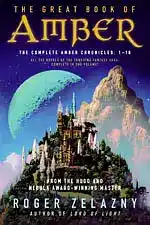 Corwin - Chronicles of Amber
Corwin - Chronicles of Amber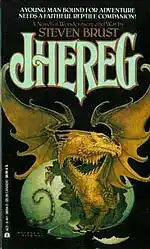 Vlad Taltos - The Vlad Taltos/Dragaera books
Vlad Taltos - The Vlad Taltos/Dragaera books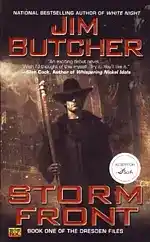 Harry Dresden - The Dresden Files
Harry Dresden - The Dresden Files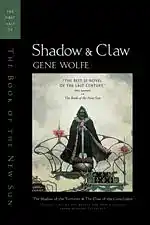 Severian - The Book of the New Sun
Severian - The Book of the New Sun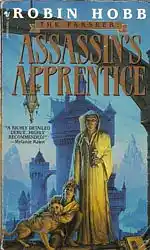 Fitz - The Farseer Trilogy
Fitz - The Farseer Trilogy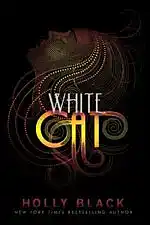 Cassel Sharpe - The Curse Workers Trilogy
Cassel Sharpe - The Curse Workers Trilogy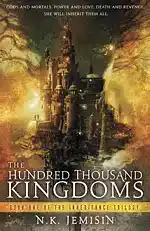 Yeine - The Hundred Thousand Kingdoms
Yeine - The Hundred Thousand Kingdoms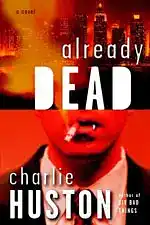 Joe Pitt - The Joe Pitt Casebooks.
Joe Pitt - The Joe Pitt Casebooks. Tyador Borlú - The City and the City
Tyador Borlú - The City and the City







